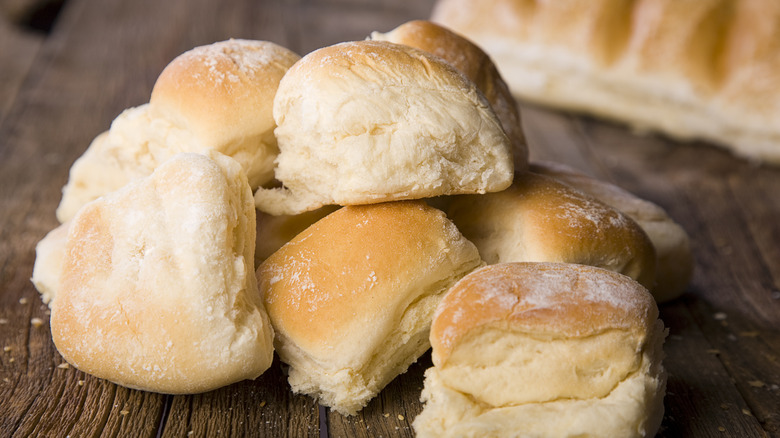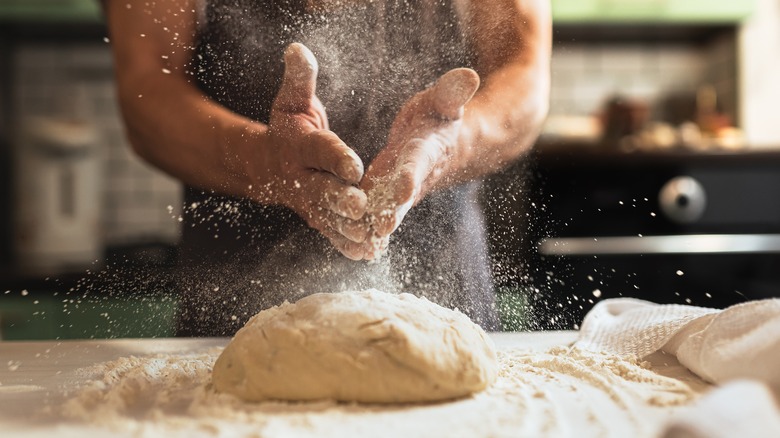The Flour Mistake That Makes Dinner Rolls Hard As Rocks
Nothing rounds out a hearty meal like a dinner roll. Whether you're dipping it into a warm bowl of roasted carrot soup or using it to clean the plate of your cacio e pepe, sinking your teeth into the soft interior of a roll makes for a perfect bite — unless, of course, your homemade rolls turn out tough and chewy. This problem is a common one and can be blamed on a simple error: adding too much all-purpose or bread flour.
Why is this a mistake? Flour is the ingredient that gives the bread its protein content. When you add water to your dough, the proteins in the flour combine to make gluten — another protein. And while gluten is what gives bread structure, as well as the pillowy texture that everyone loves, an excess of it can take your rolls from pleasantly springy to entirely inedible. When you add too much high-protein flour, like all-purpose or bread flour, to your dough, you create an overabundance of gluten, resulting in hard rolls.
How to prevent tough dinner rolls
In order to prevent an excess of gluten developing in your rolls, there are several precautions you will want to take. First, make sure that you are adding the correct amount of flour to your recipe. To measure flour properly, aerate it by fluffing it up with any utensil, then transfer it into your measuring cup with a spoon. While it may be tempting to simply scoop the flour from the bag using your measuring cup, this will cause the flour to compact, and you will inadvertently over-measure, leading to an excess of flour in your dough.
The second fail-safe for making tender rolls is to swap out a portion of your high-protein flour for a lower-protein flour like cake flour. Since this flour contains less protein, it will create less gluten when worked into a dough. This means that even if you add more than intended, you're less likely to get a rock-hard roll. In the worst case scenario, if your dough already feels too hard to work with, try setting it aside for a few minutes. Letting the dough rest will allow the gluten to relax, making it more cooperative when you get back to baking.

